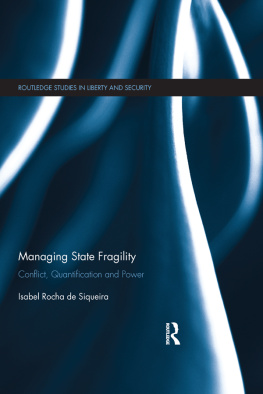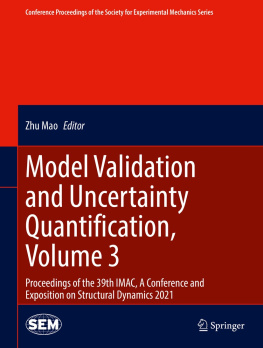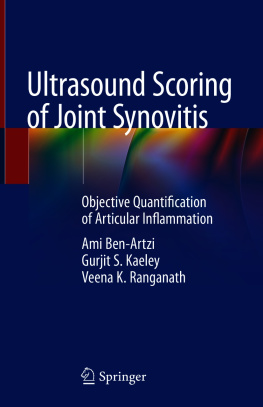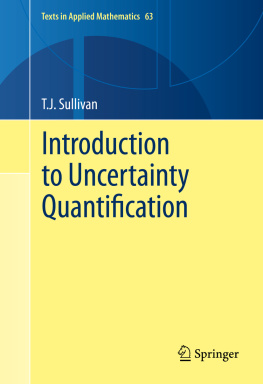Emerald Publishing Limited
Howard House, Wagon Lane, Bingley BD16 1WA, UK
First edition 2022
Editorial matter and Selection 2022 Btihaj Ajana, Joaquim Braga, and Simone Guidi.
Individual chapters: 2022 the authors Published under an exclusive license by Emerald Publishing Limited.
Reprints and permissions service
Contact:
No part of this book may be reproduced, stored in a retrieval system, transmitted in any form or by any means electronic, mechanical, photocopying, recording or otherwise without either the prior written permission of the publisher or a licence permitting restricted copying issued in the UK by The Copyright Licensing Agency and in the USA by The Copyright Clearance Center. Any opinions expressed in the chapters are those of the authors. Whilst Emerald makes every effort to ensure the quality and accuracy of its content, Emerald makes no representation implied or otherwise, as to the chapters suitability and application and disclaims any warranties, express or implied, to their use.
British Library Cataloguing in Publication Data
A catalogue record for this book is available from the British Library
ISBN: 978-1-80071-884-5 (Print)
ISBN: 978-1-80071-883-8 (Online)
ISBN: 978-1-80071-885-2 (Epub)
About the Contributors
Btihaj Ajana is Professor of Ethics and Digital Culture at the department of Digital Humanities at Kings College London. She is a former Marie Curie Fellow at the Aarhus Institute of Advanced Studies. Her academic research is interdisciplinary in nature and focuses on the ethical, political and ontological aspects of digital developments and their intersection with everyday cultures. She has written on the effects of technology on issues of identity, embodiment, governance and cultural representation. She is the author of Governing through Biometrics: The Biopolitics of Identity (2013) and editor of Self-Tracking: Empirical and Philosophical Investigations (2018) and Metric Culture: Ontologies of Self-Tracking Practices (2018). Ajana is also a filmmaker and uses film as a way of exploring social issues while bringing scholarly ideas to wider audiences. Her most recent films include Quantified Life (2017), Surveillance Culture (2017), and Fems Way (2020).
Joaquim Braga is a Researcher and Professor at the Department of Philosophy of the University of Coimbra. He is also a Member of the Research Unit Institute for Philosophical Studies. His research activity covers the fields of Aesthetics, Picture Theory, Philosophy of Technology, Modern and Contemporary Philosophy, with a special interest in symbolic thought. His works include, among others, Die symbolische Prgnanz des Bildes. Zu einer Kritik des Bildbegriffs nach der Philosophie Ernst Cassirers (2012), Rethinking Culture and Cultural Analysis Neudenken von Kultur und Kulturanalyse (2013), Leituras da Sociedade Moderna. Media, Poltica, Sentido (2013), Smbolo e Cultura (2014), Bernard de Mandevilles Tropology of Paradoxes: Morals, Politics, Economics, and Therapy (2015), Antropologia da Individuao. Estudos sobre o Pensamento de Ernst Cassirer (2017), Conceiving Virtuality: From Art to Technology (2019), Teoria das Formas Imagticas. Ensaios sobre Arte, Esttica, Tecnologia (2020).
Laura Corti is a PhD Candidate in Science and Engineering for Humans and the Environment at Campus Bio-Medico University in Rome. She is part of the Research Group Qua-Onto-Tech (Qualitative Ontology and Technology) at the University of Florence and of the Research Unit Philosophy of Science and Human Development at the Campus Bio-Medico University. Currently, her research is focussing on the philosophical issues of introducing qualities, such as sensation or emotions, into expert and robot systems. Her main research topics are post-phenomenology, philosophy of science and ethics of AI and Robotics.
Alessandro De Cesaris is a Post-doc Research Fellow at the University of Turin. He is also scientific collaborator at the Collge des Bernardins in Paris (Department of Humanisme numrique). He coedited a collective volume on Hegels logic (2020) and wrote essays in Italian, French, English and German on his main research interests: Classic German Philosophy, Media Theory and Anthropology of Technology. His current research project is focussed on the notion of hypermodernity and on the socio-technical imaginaries connected to the Information Revolution.
Lorenzo De Stefano is a Teaching Assistant in Theoretical Philosophy and in Ethics and Theory of Big Data at the Department of Humanistic Studies, University of Naples Federico II. His research interests focus on metaphysics, phenomenology, philosophical anthropology and philosophy of technology. He holds a PhD in Philosophical Sciences from the University of Naples Federico II and was a Visiting Researcher at Eberhard Karls Universitt of Tbingen, Albert-Ludwigs Universitt of Freiburg and Johannes Gutenberg-Universitt of Mainz. His current research interests are concerned with the anthropological, ontological and ethical aspects of emerging technologies.
Zeena Feldman is a Senior Lecturer in Digital Culture in the Department of Digital Humanities, Kings College London. Her research examines the ways digital communication technologies impact analogue concepts for instance, belonging, mental health and food. She has published widely, including in the European Journal of Cultural Studies, Information, Communication & Society, Celebrity Studies, TripleC, The Independent, OpenDemocracy and The Conversation. She is Co-editor, with Deborah Lupton, of Digital Food Cultures (2020) and Editor of Art & the Politics of Visibility (2017). She runs the Quitting Social Media project, which explores digital overload and detox.
Simone Guidi is a Researcher at the CNR-ILIESI (Italy). In 20192020, he was an Assistant Professor in Philosophy at the University of Coimbra and is a Full Member of the same Universitys Instituto de Estudos Filosficos. He received his PhD in Philosophy from the University Sapienza of Rome. His research deals with the History of Modern and Contemporary Philosophy, and particularly with the genesis of the Cartesian mind-body dualism. He is the Managing Editor of the international journal of philosophy










